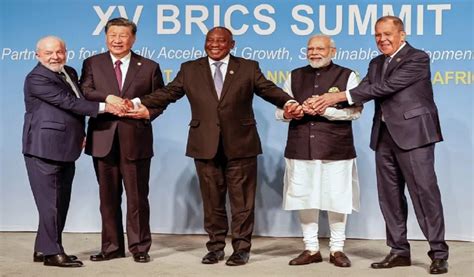Malaysia’s announcement of its intention to join BRICS—a bloc comprising Brazil, Russia, India, China, and South Africa—has sparked a wide range of reactions from both supporters and skeptics alike. Prime Minister Anwar Ibrahim’s endorsement of the group not only highlights Malaysia’s strategic pivot towards a more diversified foreign policy but also invites discussions about the relevance and future trajectory of BRICS. The decision comes at a time when the bloc itself is undergoing significant changes with the inclusion of new members like Egypt, Ethiopia, Saudi Arabia, Iran, and the UAE. This move, touted as a bid to capitalize on the collective economic and political clout of these emerging markets, is seen by some as a way to hedge against overreliance on Western alliances.
The prospect of Malaysia’s membership in BRICS has not been universally welcomed, as seen from the comments that range from skepticism about the bloc’s actual impact to outright criticism of its member states. One of the critical points raised is the issue of ‘brain drain’, where countries within BRICS are struggling to retain their most talented and educated citizens. This phenomenon, referred to as ‘the flight of the most talented’, is seen as a significant impediment to achieving the ambitious economic growth targets that the bloc envisions. While it is true that countries like China and India have seen considerable economic growth, the ongoing issues related to talent retention and capital flight cannot be ignored. On the other hand, proponents argue that BRICS offers an alternative to the Western-dominated global financial system, which could help address these issues in the long run by creating more equitable economic opportunities.
In the heated discussion about Malaysia’s BRICS ambitions, another comment highlighted that issues like brain drain are not unique to BRICS but are common in many parts of the world, including Europe. For instance, the European Union has been grappling with similar issues, especially with migration patterns that see skilled professionals moving to more prosperous countries within the bloc. This comparison serves to provide a more nuanced perspective, suggesting that while BRICS countries may have their challenges, they are not markedly different from those faced by other regional alliances. This argument positions BRICS not as an outlier but as part of a broader global trend where emerging economies are trying to manage and mitigate the outflow of their skilled workforce.
On a broader geopolitical scale, Malaysia’s bid to join BRICS can be seen as a strategic maneuver in a rapidly changing world order. Comments have pointed out that BRICS was initially conceived by Goldman Sachs as a marketing term to describe fast-growing economies, but it has since evolved into a more structured organization with regular summits and a development bank, the New Development Bank (NDB). Despite these institutional advancements, BRICS faces criticism for its perceived lack of cohesion and effectiveness in tackling major global issues. For instance, the bloc’s ability to act as a counterbalance to Western financial and political hegemony is often debated. However, Malaysia’s entry could potentially bring fresh perspectives and contribute to strengthening the bloc’s collective bargaining power, especially in areas of mutual interest like trade, technology, and sustainable development.
The most contentious aspect of BRICS is its internal dynamics, particularly the relationships and rivalries among its key members. For instance, the ongoing border disputes between China and India have been a point of contention, raising questions about the bloc’s unity and effectiveness. The inclusion of new members like Malaysia could either exacerbate these tensions or provide a platform for mediation and conflict resolution. Ultimately, the success of BRICS in addressing both internal and external challenges will depend on its ability to foster cooperation and build trust among its diverse member states. In this context, Malaysia’s potential membership could serve as a litmus test for the bloc’s resilience and adaptability in a multipolar world.


Leave a Reply